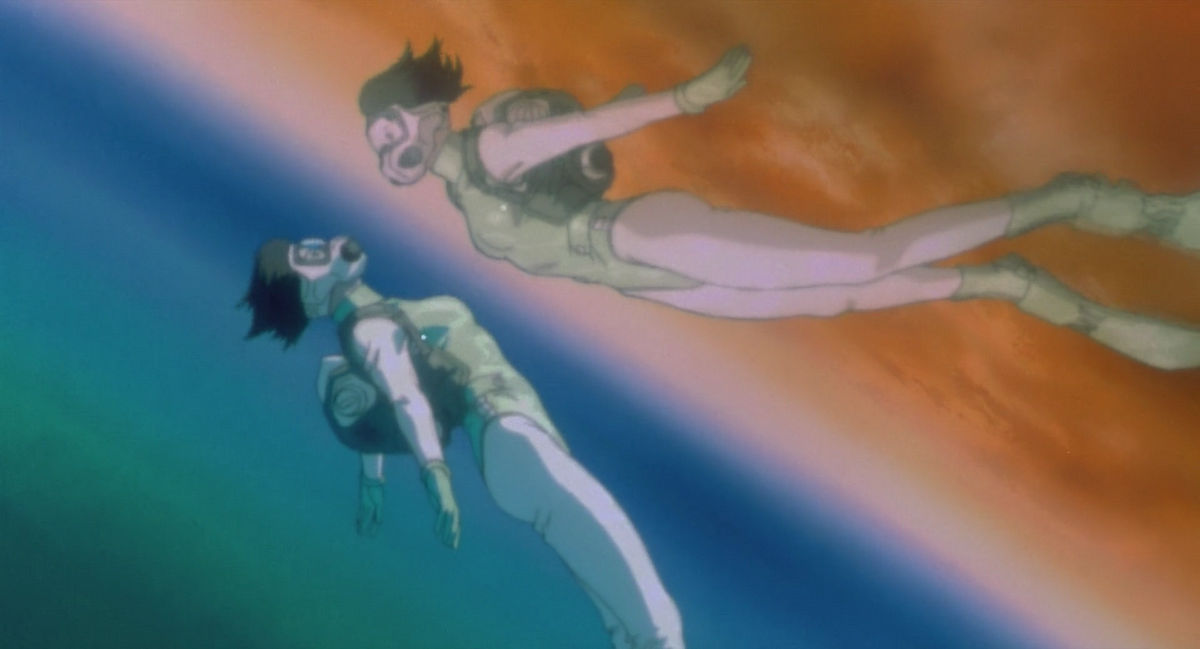

It seems the chant, although in ancient tongue, was only written in modern times by Kenji Kawai as his conception of a wedding chant.

From that, the line came to be used for prayer to cleanse impurities. These "god words" were the signal that fortune had been told. When Shinto used to have more shamanic styles, there was a means of fortune telling by burning the shell of a turtle. The sterling bird singing (it sounds considerably less melodic than other birds) at night or dawn creates the feeling that the song is an omnious sign.Īnd regarding "遠神恵賜" (The distant god has given us the blessing) Hence here rather than to say "kekkon/wedding," it is read as "yobai/nightly crawl into bedroom." Besides, living separately (excpet for reproductive activities) from a spouse was common practice by nobles in ancient times, before the feudal age.Īnd regarding the bird, which they translated as "the sterling bird": In ancient times, sneaking into the bedroom of a love interest constituted a proposal for marriage. Kawai on the soundtrack liner notes.Īnd regarding the line "結婚に神降りて" (upon the wedding/proposing marriage, the god shall descend):

Kawai relied on a Japanese folk song choir he had dealt with in previous works (Ranma 1/2) which inspired him to use an ancient tongue, mixed with Bulgarian harmony, with traditional Japanese notes, confesses Mr.
#The ghost in the shell 1995 professional#
However they found that there is not a single professional folk singer in Bulgaria, so Mr. Kawai envisioned Bulgarian Folk Singers doing the opening song. The opening song is what Kenji Kawai and Mamoru Oshii perceived as a wedding song, to be rid of all evil influences that are about to follow. "If I were to dance" instead of "Because I had danced"), so I asked a Japanese Language SE question to determine which translation was correct and broccoli forest was kind enough to link a previous related question explaining the grammar, so the above past-present tense translation is correct.īut regarding the meaning the site had these interesting points:

The night clears away and the chimera bird will singįrom this page I got an alternative translation which uses the future tense (eg. Proposing marriage, the god shall descend Besides, it's not verified as being of Mythological origins.)īecause I had danced, the beautiful lady was enchantedīecause I had danced, the shining moon echoed Perhaps I should see if I get an answer and if in a month or two I don't then I should ask the Moderators to migrate to Myth? But me likes being on SciFF more 4 this 1, narf. (Note: There's also the question of whether I should ask this on SciFiF or Mythology. But if anyone is then someone said this is the Bulgarian inspiration for the chant: The Great Voices of Bulgaria. Note: I'm not interested in the Bulgarian folk harmonies in this question. I'm amazed that it's so hard to find more information on such a famous and iconic cyberpunk's main theme. The first YouTube video has comments which say that the chimera bird referenced is the mythical Nue, and that the chant is based on a Japanese folk tale, but doesn't say which one.įurther, regarding the the Nue chimera claim: "Since the people of the Heian Period regarded the sorrowful sounding voices of this bird as an ill omen, they were considered to be a wicked bird, and it is said that when the emperor or nobles heard its crying voice, they would make prayers that nothing disastrous would happen." The claim the chimera bird is the Nue doesn't seem to fit in with the lyrics or this being a wedding chant. What is the story behind the chant and which god is referenced? When was it created? Is it still used as a wedding chant to this day? How popular was it and/or is it as a wedding chant? Is a specific traditional wedding dance being referenced? If I recall the wedding song was used only in the intro to signify the "marriage" between man and machine.
#The ghost in the shell 1995 full#
The main theme from GitS is actually a traditional Japanese song about two lovers meeting under a full moon, sung in a Japanese key but in the style of Bulgarian folk singing About all the information I can find on it is limited to this: The entire soundtrack was made by Kenji Kawai. (The first video is Reincarnation, the third chant, which uses the same chant as Making of Cyborg, the first chant, and is exactly the same until the 4 minute mark where it adds a single line repeated thrice: "The distant god may give us the precious blessing") Making of Cyborg is the amazing main theme and first chant of Ghost in the Shell (1995), and Reincarnation is the third chant. What more is known about the Japanese mythical and folk origins of the Wedding Chant in Making of Cyborg and Reincarnation, the main theme songs of Ghost in the Shell?


 0 kommentar(er)
0 kommentar(er)
